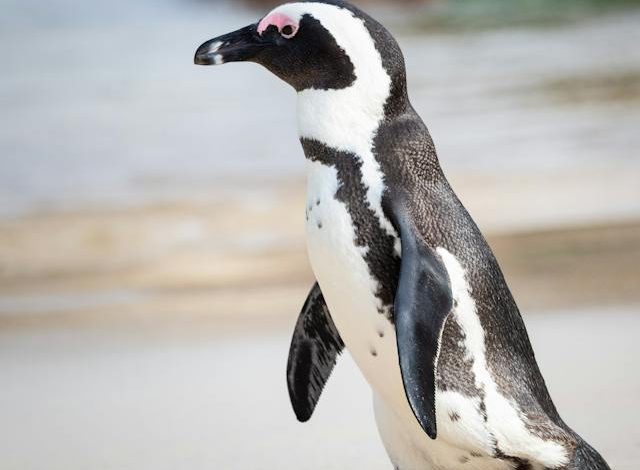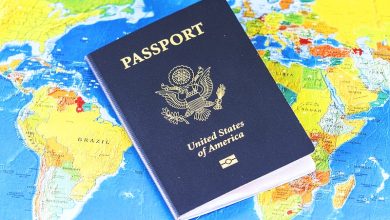The African Penguin: A Fascinating Species in Decline

The African penguin (Spheniscus demersus), native to southern African waters, is a distinct species of flightless bird adapted to life in the ocean.
Despite once being numerous, this species faces rapid decline and is now classified as endangered. Known for its charm, the African penguin is a favorite among tourists.
ALSO READ: Tiger vs Lion Sizes: The ‘Big Cat Rivalry’
African Penguin Physical Characteristics:
These small to medium-sized penguins are adorned with black-and-white plumage, which serves as camouflage from predators.
The black back blends with the ocean depths when viewed from above, while the white belly is inconspicuous from below.
Notably, they feature a horseshoe-shaped white stripe across their face and chin. Young penguins have gray-blue feathers that darken with age.
African Penguin Habitat and Distribution:
African penguins inhabit the coasts of South Africa and Namibia, living in colonies on 24 islands. They are non-migratory, spending most of their time at sea but coming ashore for breeding and molting.
Behavior:
These penguins are both diurnal and crepuscular, seeking shelter from the sun during the day and becoming active at twilight.
They are highly social, engaging in communal grooming to maintain their plumage and strengthen social bonds.
Their loud, donkey-like calls are a distinctive feature of their courtship rituals. They often bathe near the shore for cleaning and cooling.
Diet:
As carnivores, their diet primarily consists of fish like pilchards and anchovies, along with squid and crustaceans.
ALSO READ: 300 Entertaining and Random Animal Facts
African Penguin Reproduction:
African penguins are monogamous, breeding throughout the year with a peak in February. Females typically lay two eggs in a burrow or under shelter.
Both parents incubate the eggs and care for the chicks, which join crèches for protection. Chicks become independent at 3-5 months of age, with males maturing at five years and females at four.
Population Challenges:
The species faces threats from commercial fishing, competition with Cape Fur Seals, natural predators, and oil pollution. As of 2015, the estimated number of mature individuals was around 41,700, but the population is decreasing.
Interesting Facts about African Penguin:
- African penguins communicate using brays, yells, and haws, earning the nickname “jackass penguins” due to their braying sounds.
- They can hold their breath underwater for about 2.5 minutes.
- They possess pink glands above their eyes for thermoregulation, which help cool their blood.
- Skilled divers, they can reach depths of 130 meters but typically dive around 30 meters.
- They undertake long foraging trips, sometimes traveling up to 110 km.
- Annually, they undergo molting, losing about half their body weight during this 20-day fasting period on land.





